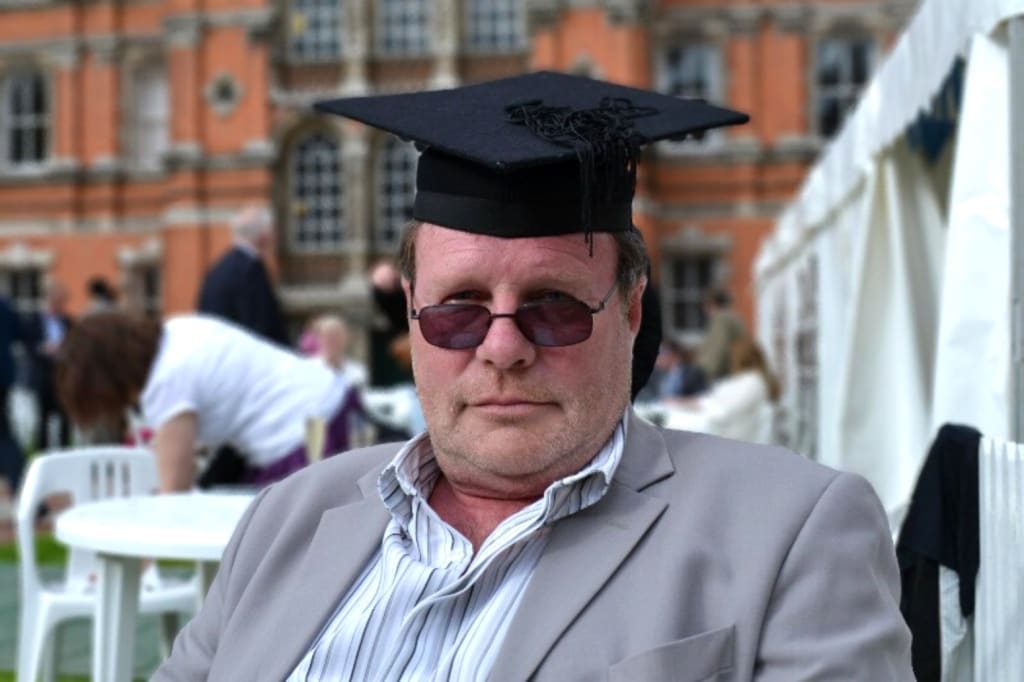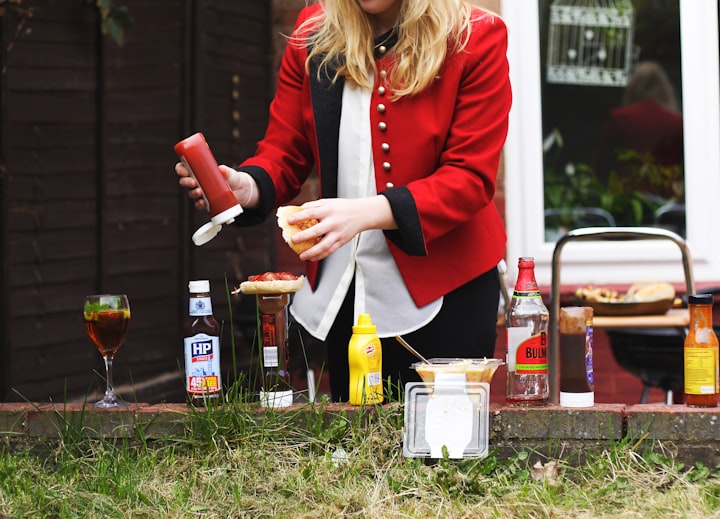The biggest lesson my father taught me came after he died
How grief opened my mind.

I used to be a staunch atheist. I believed that there is no God, there's no rhyme or reason for us being here, and when you're dead, you're dead and there's nothing else to it.
I was content in these beliefs and saw no reason for changing them. They didn't cause me discomfort and as far as I was concerned they were sensible, logical ways of looking at the world. I didn't need to examine them or change my stance. I was right.
And then my dad went and died.
Grief hurts
I had lost family members before so I wasn't new to the concept of bereavement, but losing Dad was a level of grief I had never known.
This was the man I had spoken to almost every single day for 21 years. This was someone who had never not been in my life. This was someone who I felt I could completely rely upon to support me, champion me and love me no matter what. And suddenly he was gone.
I didn't know grief could cause such physical pain. My chest throbbed. There was something wedged permanently in my throat. Unknown worries clawed at my stomach.
Every time I thought of Dad - and I thought of him often - I cried at the realisation that I would never speak to him again.
I couldn't stand it. Couldn't believe it. It didn't seem real. How could a person so integral to my life simply cease to exist?
I went over and over all the things I would tell him if I got the chance for one last chat.
I'd tell him I loved him. I'd tell him I was grateful for all he did for me. I'd tell him how much it boosted me to know that he used to methodically print out, read and file away every short story and essay I penned for my degree. I'd tell him I was glad he saw me graduate. I'd tell him my creative streak was his doing.
I'd tell him I was glad for the eclectic taste in music he gave me. I'd thank him for the peculiar collection of family heirlooms he passed down to me, along with his fascination for all things old and pricelessly worthless. I'd tell him that because of him I will always recognise the cheery song of the Lapwing (peewit! peewit!) and that I wish I'd paid more attention during all the occasions he had recited birdsong.
I'd tell him I was sorry for every argument I started or every bickering match I exacerbated. I'd tell him straight up that he could be a right grumpy old git while finally admitting to him that I could be just the same. I'd tell him that I wish I could take back all the sulky rolled eyes I gave him when he asked for hugs. I'd tell him I'd hug him in a heartbeat now.
But I would always circle back to the impossibility of it. He was dead. I'd never speak to him ever again. All I could do was sit with my unspoken words wedged in my throat.
Unless I changed my view of what death meant.
What if...?
What if I will see him again?
What if, on the day I die, I'll be reunited with him and with all the other loved ones that have gone before me?
What if there's an afterlife in which we'll meet again, whether it's another realm beyond Earth or the invisible void that hangs between the stars?
What if, when I'm on my deathbed, my life flashes before my eyes and in a blink I see Dad and have all the conversations I could ever want with him in a matter of milliseconds?
What if I don't need to have any conversations with him at all, because he already knows what I'd like to tell him because he is everywhere, his soul having become one with the dirt and the grass and the trees and the leaves and the clouds and the sky?
Who's to tell me I'm wrong for believing in any and all of these possibilities? After all, you can't prove me wrong.
And so I began to believe. Not in an afterlife necessarily, but in the possibility of one. I leaned into the unknowing and became curious about the possibilities of life after death.
I let my mind run away with imaginings of ghosts and psychics and mediums. I considered the phenomena of invigorating near-death experiences and comforting deathbed visions. It brought me solace to think that maybe, just maybe, I might have a chance to see Dad again.
It will be 10 years this October since Dad died and I've long since grown familiar with his absence. It isn't anywhere near as painful anymore. I smile instead of cry when I think of him these days. I no longer need to believe in the possibility of an afterlife to cope with his death.
And I no longer call myself an atheist. Agnostic seems to fit much better.
Curiosity brings comfort
I remain curious about where Dad is, what he's up to and whether he knows what's going on in my life right now, because it makes me smile to picture him somewhere rather than nowhere at all.
And while I'm at it, I remain curious about lots of things I once had 'sensible' and 'logical' atheistic beliefs about. I'm curious about the possibility that my life's purpose is set out for me by some unknown force - not a God, but perhaps the Universe in its vast complexity - because it keeps me tethered when I'm feeling lost.
I'm curious about the possibility that faeries lurk amongst trees and flowerbeds and hedgerows, because it keeps my sense of whimsy alive in a world that so often can be frustratingly practical and grey.
And I'm curious about the possibility that my soulmate is out in the world somewhere and I will meet them when both of us are ready, because it stops me from feeling panicked by my aloneness and helps me focus on improving myself.
As long as there are questions unanswered - what happens when we die? why are we here? what's the point in all of this? - it's comforting to come up with our own answers, no matter how silly or unscientific they may be. It's a relief to have some beliefs, or at the very least to indulge in some curious thinking during times of sorrow or uncertainty.
So when I think back over all the lessons my dad taught me - that Swifts eat and sleep on the wing, that The Rolling Stones are better than The Beatles, that you'll avoid a hangover as long as you don't mix your drinks - the biggest one is this:
It is wise to keep an open mind.
About the Creator
Ellie Scott
Writer, worrier, big fan of dogs. https://linktr.ee/elliescott
Reader insights
Nice work
Very well written. Keep up the good work!
Top insights
Compelling and original writing
Creative use of language & vocab
Heartfelt and relatable
The story invoked strong personal emotions






Comments (1)
Deserves greater recognition. After my mother passed away, I felt that she asked me to no longer revisit the place of her passing on that particular date, as she would be there whenever I call her to mind. I'd also recommend "The Denial of Death" by Ernest Becker for your serious consideration.